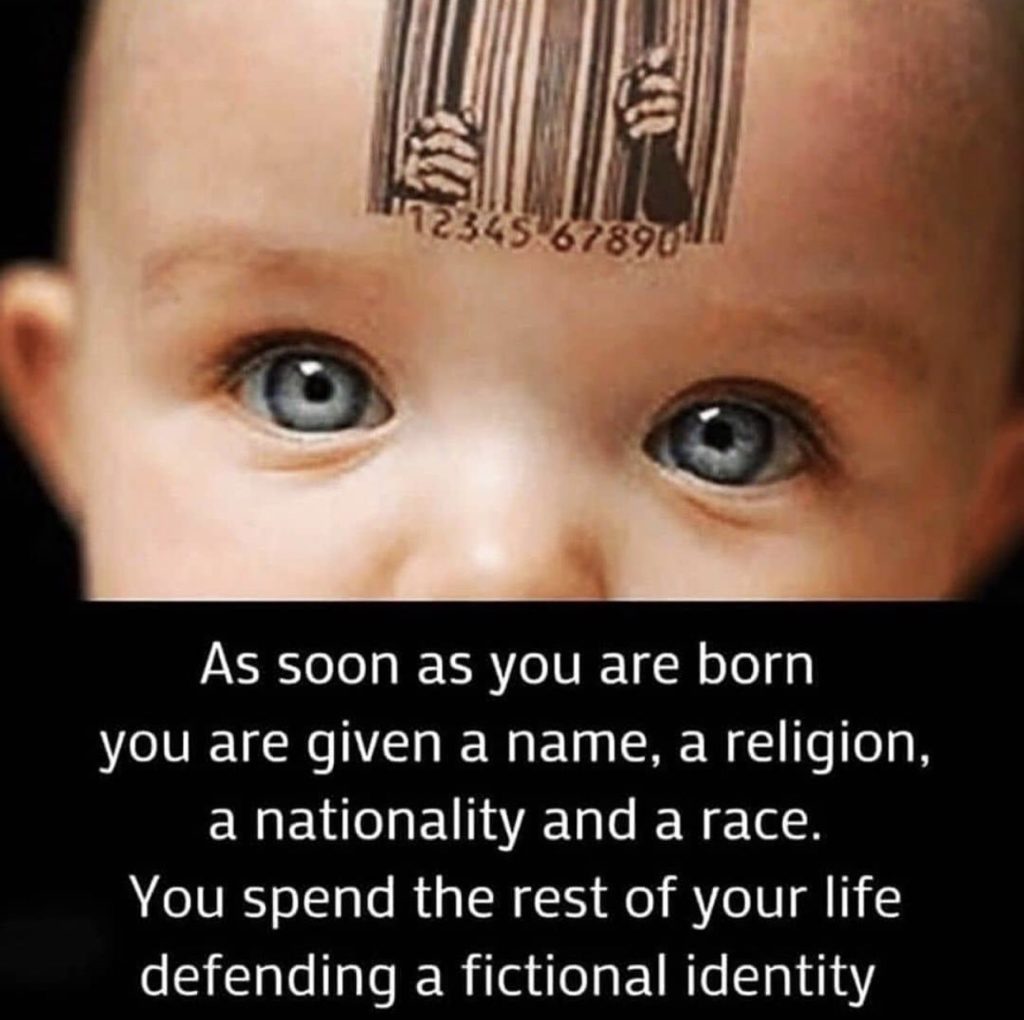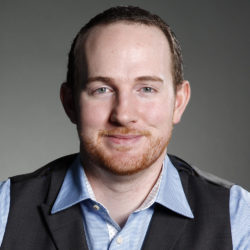
As a kid, I was raised in a partially religious household. My Mom was devout Mormon (still is), and I believe my Dad was agnostic (if anything, he never really discussed it). He supported my Mom’s decision to make my sister and I go to church, but for the most part didn’t really take part (he was more the “church of the outdoors” sort on the weekends).
Because of this scenario, I went to church for 3 hours almost every Sunday of my life, spent 4 years in seminary studying scriptures, and even ended up serving a 2 year, full-time mission for my church.
At this point in my life, I’m no longer religious (for a huge number of reasons, enough for an entire book), so I won’t dive into the many whys here.
“The only thing that interferes with my learning is my education.” – Albert Einstein
That said, despite no longer being religious, I have never been able to entirely shake the things I was taught as a child. I remember the songs, I remember the scriptures, and I remember all the concepts and precepts that made up my once heavily religious world.
And while I believe that I’ve largely overcome the cognitive influence of those things on my life (which in many ways has made me feel infinitely more free and happy), the remnants, well, remain.
And so, out of deep desire to understand why that is, I’ve spent a great deal of time studying religion from the perspectives of psychology, sociology, and neuroscience…and what I’ve found is truly fascinating.
What I’ve learned, to sum it up, is this: being raised in a religion, for all intents and purposes, is more or less a form of brainwashing. Insert brainwashing vs. indoctrination arguments here.
For the average child raised in a religious household, religion is drilled into you over and over and over again, with so much repetition and at such an early age, that it becomes ingrained in your psyche. You quite literally perceive the world through a religion tinted lens, and this occurs without your conscious consent.
As the Bible would say: “Train up a child in the way he should go: and when he is old, he will not depart from it.” – Proverbs 22:6
From a psychological perspective, I’d render the second part of that as “and when he is old, it will not depart from him.” Try as you might, if you were indoctrinated into a religion as a child, you’ll most likely never be able to shake it entirely.
A friend of mine showed me the following movie, and while it doesn’t prove or disprove the existence of deity (I actually don’t think anyone/anything can, if we’re being logical), it does provide a very interesting point of view.
Why, you might ask, does this matter? Because being religious, or just being raised in a religious environment (either cultural or familial), creates an incredibly potent mental framework that can influence your decisions, limit your experiences, and skew your point of view for the whole of your life.
It is quite possibly the ultimate example of Nurture overpowering Nature, and that’s something that you need to be fully aware of.
Now, if you talk to any expert on childhood development, at some point you will almost certainly end up in a Nature vs. Nurture debate.
On one side of the fence there are those who believe that your genetics define you, and that who you are (and who you become) is a function of your genetics. (Ever seen the movie GATTACA? In that world, who you became was ALL about your genetics.)
On the other side of the fence are those who believe that how and where you are raised, and the experiences that you have as you grow up and go through life, will define who you ultimately become.
Of course, like so many things in life the answer lies somewhere in-between the two…unfortunately, nobody yet knows exactly where to draw that line.
We know that who we are is a combination of nature AND nurture, but precisely what combination? 80% nature and 20% nurture? 60% nurture and 40% nature? Does it even work that way?
As I’ve studied this concept over the years, I believe I’ve come to a rough understanding of how this balance works, and I’ve developed an image that I use to help define this concept in a way that seems to make sense to everyone I’ve explained it to.
When I think of nature (genetics), I envision a scaffolding, like you’d use for construction. The quality of the scaffolding material, how carefully it has been maintained, how it was set-up, whether it is being used out in the elements or in a carefully sheltered environment…all of these things impact the structure that can be built with this scaffolding, and the safety of building said structure.
Genetics can give you some potential advantages (good looks, skin color, height, muscles, health, intelligence, etc.), but whether or not those genetic advantages translate into real world advantages depends largely on nurture.
To put it simply, nurture is what you build with the scaffolding that nature has given you, and it is very largely out of your direct control as an individual, particularly in your early years.
A tall, well-muscled child with a genius level IQ has more natural potential than others. But if that child lives in rural Africa, with very little water and poor medical care (not to mention limited access to the knowledge of the outside world), they may never achieve their genetic potential.
Nature matters, but nurture matters even more.
Here’s a fascinating albeit antiquated example of the limitations that can come from nurture (which I define as how and where you were raised): surnames.
Smith, Baker, Miller, Cook, and on and on. Once upon a time, your name quite literally defined your existence.
A Smith worked in a smithy, a Cook did the cooking, a Baker did the baking, and a Miller did the milling. Of course, you could decide to do something else (Go Nature!), but the odds were great that you’d continue in the family tradition (Shit, Nurture).
Alas, in many ways, things aren’t so different now. While we’re not automatically limited by our names (for the most part), we can be very much limited by where and how we are raised.
Do you understand what I’m saying? For good or ill, where and how someone is raised will be, for most people, the deciding factor in how their lives turn out.
Can you change this? Absolutely.
However, to escape from this particular cage, you’re going to need to accept a few basic principles. The first one is this:
Not all lives are equal.
We are not born with identical DNA, on equal standing, in equal environments, nor with equal potential. In fact, the only thing equal about all mankind is that we die.
A person does not, by sole virtue of being human and alive, have the same value to the world that an Einstein or a Jonas Salk did…but perhaps they could. So what holds people back? Education.
When you’re taught virtually from birth that there is a certain path through life that you absolutely must follow, because that’s just the way things are, it artificially narrows your view of reality.
But here’s another of the great secrets of life:
There are as many paths through life as there are destinations.
A path is simply a means to an end, a tool to reach a specific destination. Don’t let anyone tell you where you’re going, or how you’re going to get there. That path is yours to define, and yours alone.

PS – There are a few things I didn’t cover in the book, that I want to address here (and yes, I realize this post will piss some people off..which is probably a good thing):
- I don’t resent being raised in a religion. Raising a child in a religion isn’t (usually) malicious, and I know my parents just wanted to do right by me. I appreciate having seen both sides of the fence, and if I wasn’t raised the way I was, I wouldn’t have gone down many of the paths that I have.
- I’m agnostic, if you really feel the need to apply a label (I hate labels like that). Could there be a God? Sure. Could there not be a God? Sure. Considering that humans have explored just 0.00001% of the Universe, and the Universe appears to be infinite, then I think it’s safe to say that A. anything is possible, and B. you can’t prove or disprove the existence of deity when you’ve only sampled 1/100,000th of 1% of a population (seriously, you can’t do it, the sample size is too small).
- Can certain religions be proven false? Yes, or at least, aspects of those religions can. I’m not going down that rabbit hole here, but if you care to, there’s no end to that shit online.
- I’m not anti-religion…I’m anti-“blind adherence to tradition”. Religion isn’t bad, and it isn’t good, in the same way a gun isn’t good or bad. It’s a tool, and it’s only as good or bad as the person using it. But, like a gun, it’s a dangerous and powerful tool. You shouldn’t shoot a gun without some safety lessons, and I don’t think you should participate in a religion without some logic and psychology lessons 🙂
